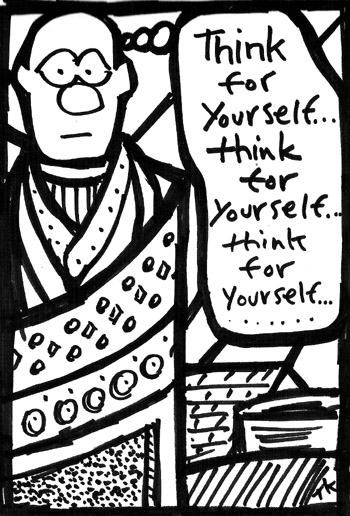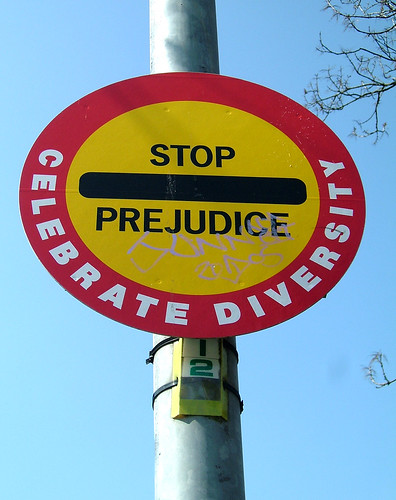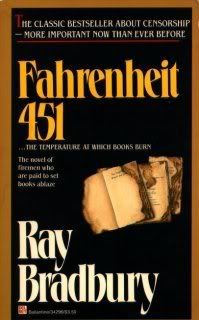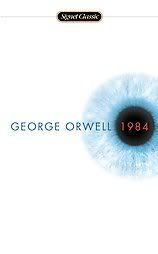
Entry of your choice.
I did not enjoy this book at all. To be honest, I don't like any kind of science-fiction book.
At first Fahrenheit 451 looked very appealing and interesting, but the more I read, the less interested I was. Nothing within the book grabbed my attention. Many people may like Ray Bradbury's writing style, but I didn't. I thought he was too repetitive, having the characters say the same words over and over again. I also didn't understand how the time was going in this story. At one point in the book it said, "One two three four five six seven days." (Pg. 28) However, later it mentioned something that had happened "yesterday". What I was thinking was, 'How could something have happened yesterday if seven days passed since that day?' Either I missed a detail somewhere along the line, or Ray Bradbury got his time scrambled.
The only thing, or person I should say, that I liked about this book was Clarisse McClellan. I was most interested in the story whenever she came out. It's probably no wonder I lost my interest as soon as she was run over by a car. I could relate to her most. She was connected to everyday things, such as noticing that there was dew on the grass in the mornings and whether or not she was happy. So many people around me are so worried about the "big picture" of things, but not me. I choose to be happy, and rather than worrying about the "big picture", which sometimes isn't really that big, I tend to look at and enjoy the little things in life, just like Clarisse. She didn't care about the fact that there was fast and cheap entertainment in the parlors. She cared more about life and truth. I know I sometimes get carried away with the fast and cheap entertainment, too, but I prefer the truth and simple moments...and my opinion.
I did not enjoy this book at all. To be honest, I don't like any kind of science-fiction book.
At first Fahrenheit 451 looked very appealing and interesting, but the more I read, the less interested I was. Nothing within the book grabbed my attention. Many people may like Ray Bradbury's writing style, but I didn't. I thought he was too repetitive, having the characters say the same words over and over again. I also didn't understand how the time was going in this story. At one point in the book it said, "One two three four five six seven days." (Pg. 28) However, later it mentioned something that had happened "yesterday". What I was thinking was, 'How could something have happened yesterday if seven days passed since that day?' Either I missed a detail somewhere along the line, or Ray Bradbury got his time scrambled.
The only thing, or person I should say, that I liked about this book was Clarisse McClellan. I was most interested in the story whenever she came out. It's probably no wonder I lost my interest as soon as she was run over by a car. I could relate to her most. She was connected to everyday things, such as noticing that there was dew on the grass in the mornings and whether or not she was happy. So many people around me are so worried about the "big picture" of things, but not me. I choose to be happy, and rather than worrying about the "big picture", which sometimes isn't really that big, I tend to look at and enjoy the little things in life, just like Clarisse. She didn't care about the fact that there was fast and cheap entertainment in the parlors. She cared more about life and truth. I know I sometimes get carried away with the fast and cheap entertainment, too, but I prefer the truth and simple moments...and my opinion.










